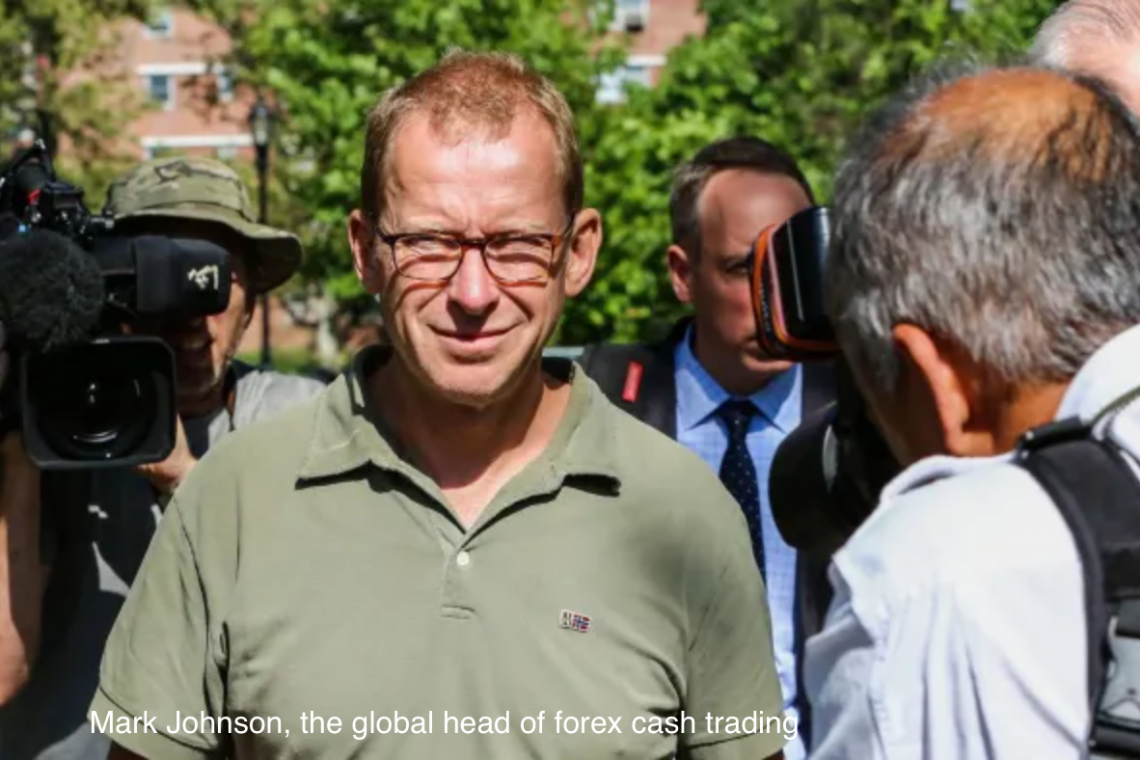Two top foreign exchange traders employed by HSBC have been charged with making $8m in profits and fees by “front running” a client’s $3.5bn foreign exchange trade, according to a US criminal complaint unsealed on Wednesday.
DoJ alleges $8m profit was made at the expense of UK client
Mark Johnson, a UK citizen and the global head of forex cash trading, was arrested on Tuesday evening at New York’s John F Kennedy airport, on charges of conspiracy and wire fraud. A warrant was also issued for the arrest of Stuart Scott, a UK citizen who was head of forex cash trading for Europe, the Middle East and Africa until he left HSBC in 2014.
Mr Johnson was later released on bond secured by $300,000 and his house in the UK.
The arrest could cause reputational damage to the global bank’s forex trading business and fuel more calls for HSBC to face full criminal charges. The US Department of Justice has already been criticised for failing to prosecute HSBC after it paid $2bn in 2012 over laundering billions of dollars for Mexican and Colombian drug gangs.
The bank, which declined to comment, is also under DoJ investigation over alleged rigging of the $5tn foreign exchange market.
HSBC and a number of its largest competitors have already paid more than $10bn in civil penalties in connection with the global forex probe. But this case marks one of the first times that individual currency traders have been accused of cheating a specific client, an allegation that could further erode trust in the bank.
The DoJ alleges that the traders cheated an unnamed client by deliberately buying pounds ahead of the customer’s $3.5bn purchase of sterling and reselling it to the client at higher prices.
The client in question was Cairn Energy, a UK listed oil and gas producer, according to a person briefed on the investigation.
In 2011, Cairn sold an ownership interest in an Indian subsidiary for $3.5bn and wanted to convert it into sterling to distribute it to shareholders. It hired HSBC and required the bank to sign a confidentiality agreement.
US authorities allege the traders used a technique known as “ramping” that caused the price of pounds to spike. That spike benefited the bank’s trading book at the expense of the client, who then paid a higher price for the sterling.
The price spikes caught the attention of an adviser to Cairn, who challenged an unnamed supervisor about the movement. The unnamed supervisor, working with the bankers, then allegedly mislead the client by blaming the price increase on a “Russian” bank in the market, US authorities said.
The complaint adds that Mr Johnson was surprised Cairn went ahead with the transaction. When told of the company’s commitment, he responded “Ohhh, f***ing Christmas,” using an expletive as an adjective.
Cairn declined to comment.
The DoJ alleges the traders made $3m in profits in their own trading book by front running the trades and HSBC received $5m in improper fees.
HSBC fired Mr Scott as its head of European currency trading in December 2014, just weeks after the bank paid a $618m fine to US, UK and Swiss regulators for its involvement in the foreign exchange rate-rigging scandal.
Since then he has not taken another “controlled function” at a British financial institution, according to the UK Financial Services Register.
A criminal conviction in the forex matter could reopen the deferred prosecution agreement that HSBC signed in 2012 to avoid charges for breaching sanctions and anti-money laundering rules, which is due to expire next year.
The UK Financial Conduct Authority said: “We have been liaising with the DoJ regarding the foreign exchange investigation on both sides of the Atlantic. We cannot comment on specific strands of those investigations.”
The FCA is expected to wait for the DoJ to complete its criminal case against Mr Johnson and Mr Scott before taking any regulatory action against the men. The UK’s Serious Fraud Office dropped its criminal investigation into foreign exchange manipulation this year.


